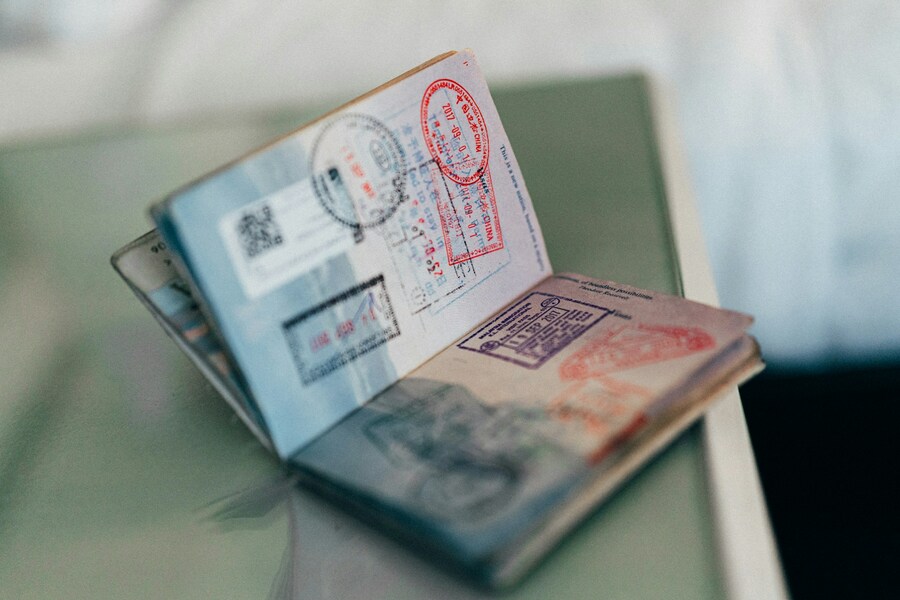Vacations are a vital reset for your mind, body, and soul, offering a chance to explore new cultures, savor new flavors, and create lasting memories. Yet, without careful planning, a perfect getaway can quickly become a logistical nightmare of missed flights and unexpected expenses. The key to a revitalizing trip lies in meticulous preparation. This article serves as your roadmap, ensuring every detail is considered so you can relax and fully immerse yourself in the adventure. From the initial idea to the moment you depart, we'll transform the daunting task of trip planning into an exciting part of the journey itself.
This comprehensive travel guide is designed to empower you with the tools to plan a vacation confidently. We'll go beyond basic bookings, delving into the crucial, often-overlooked details that make a trip truly successful, from visa requirements to securing the right travel insurance. By following these steps, you'll avoid common pitfalls and gain a deeper appreciation for the journey. A well-planned trip is a joy from start to finish, with the satisfaction of a seamless experience as its own reward.
The journey begins here with a clear, actionable plan that puts you in control. Instead of being overwhelmed by a long to-do list, you'll feel excited and prepared, knowing every aspect of your adventure has been thoughtfully arranged. Think of this article as your personal travel consultant, breaking down a complex process into simple, manageable tasks. By the time you're ready to leave, you'll feel confident, calm, and ready to embrace the new experiences that await. So, let's get to the point!
Ready to travel the world? A proactive approach to your next adventure

Source: Kit/Unsplash
The key to a successful trip is thorough, proactive planning. By breaking down the process into manageable steps, you can avoid last-minute panic and make sure you've covered all your bases. The goal is to move beyond simply booking flights and hotels and to instead build a comprehensive plan that anticipates needs, mitigates risks, and maximizes your enjoyment.
Step 1: Confirm your passport and its validity
Before you even begin dreaming of distant lands, the very first thing you need to do is check your passport. This might seem obvious, but it's a mistake that trips up countless travelers every year. A quick glance at the expiration date isn't enough. Many countries, particularly those in Europe and Asia, require that your passport be valid for at least 6 months beyond your planned date of departure. If it expires within this timeframe, you may be denied entry, even if you have a valid visa. Renewing a passport can take several weeks, so it's crucial to start this process well in advance. Check the current processing times for your country's passport office and give yourself plenty of buffer time to account for any delays. An invalid or soon-to-expire passport can bring your travel plans to a halt before they even begin.
Step 2: Choose your perfect destination
This is often the most exciting part of the planning process. What kind of vacation do you want? Are you craving a quiet beach escape, an adrenaline-fueled mountain adventure, or a deep dive into the history and art of a bustling city? The world is your oyster, and narrowing it down requires a bit of introspection. Consider your travel companions: is this a solo journey, a romantic retreat, a family fun-fest, or a group exploration with friends? The ideal destination for a family with young children might be very different from what a solo backpacker is looking for. Read travel blogs, watch documentaries, and talk to friends who have recently traveled. Let inspiration guide you, but also be realistic about what is feasible given your budget and time constraints.
Step 3: Dive deep into destination research
Once you have a destination in mind, the real research begins. This is where you transform a general idea into a concrete itinerary. Start by learning about the culture and local customs. Are there specific dress codes for visiting religious sites? What are the tipping conventions? Understanding these nuances helps you be a respectful and responsible traveler. Next, investigate the local transportation options. Will you be relying on public transit, taxis, or ride-sharing apps? Look up local events, festivals, or holidays that might coincide with your trip, as these can either enhance your experience or cause unexpected closures and crowds. Research popular attractions, but also seek out hidden gems and off-the-beaten-path experiences. A well-rounded itinerary balances must-see landmarks with authentic local experiences.
Step 4: Establish a realistic financial plan
A vacation is a significant financial investment, and a budget is your best friend in keeping costs under control. Start with a list of all potential expenses: flights, accommodation, food, activities, local transportation, shopping, and a contingency fund for unexpected costs. Be as specific as possible. Instead of just "food," break it down into "restaurant meals," "street food," and "groceries." Research the average cost of these items in your destination. Don't forget to account for pre-trip expenses, such as new luggage or travel gear. A well-defined budget helps you prioritize your spending and make informed decisions, whether it's opting for a cheaper flight to splurge on a nicer hotel or choosing a destination that aligns better with your financial goals. It's not about being restrictive; it's about being smart.

Source: T.H. Chia/Unsplash
Step 5: Pinpoint your travel dates and book early
Once you know where you're going and how much you can spend, it's time to lock in your dates. Flexibility is a huge advantage here. If your schedule allows, traveling during the shoulder season (the period between peak and off-peak seasons) can save you a significant amount on flights and accommodation while offering pleasant weather and fewer crowds. When you've chosen your dates, book your flights and major accommodations as early as possible. Prices tend to increase as the travel date approaches. Consider using a price-tracking tool to monitor flight costs before you book. And remember that the planning extends to the details of your departure and arrival. For instance, when planning a long road trip, pre-booking your airport parking is a smart move. Websites like ParkingNearAirports.io make it easy to secure a spot ahead of time, often with exclusive cheap airport parking deals and airport parking coupons to help you save. You can compare various airport parking offers and find the best option for your needs.
Step 6: Secure your travel insurance
No one likes to think about things going wrong, but travel insurance is a non-negotiable safety net. It protects you from a wide range of potential mishaps, from a cancelled flight or lost luggage to a medical emergency abroad. It's always wise to look for a comprehensive policy that includes coverage for everything from trip cancellation for any reason to emergency medical evacuation, unforeseen quarantine costs, and even pre-existing medical conditions. Policies vary widely, so read the fine print carefully to understand what is and isn't covered. Some credit cards offer travel insurance benefits, but it's important to confirm the extent of this coverage and whether it's sufficient for your trip. A good policy provides peace of mind, knowing that if the unexpected happens, you won't be left with a massive financial burden.
Step 7: Check and fulfill all visa requirements
Just as with passports, visa requirements can be a major hurdle if not addressed in time. Every country has different rules for foreign visitors. Some nations offer visa-free entry for certain nationalities, while others require you to apply for a visa in advance. The process can be complex and time-consuming, involving multiple forms, biometric data, and in-person appointments. The best place to start is the official government website of the country you plan to visit or its embassy in your home country. Be wary of third-party websites that promise a quick fix, as they may be scams or provide outdated information. Give yourself a generous timeline to complete this step, as visa application processing can take weeks or even months.
Step 8: Assess and arrange necessary vaccinations
Before traveling to certain parts of the world, especially those in tropical or developing regions, it's essential to check for any required or recommended vaccinations. Diseases like yellow fever, typhoid, and hepatitis can be prevalent in some areas, and protecting yourself is paramount. Schedule an appointment with your doctor or a travel health clinic at least a month before your trip. This allows enough time for the vaccines to become effective and for you to receive any necessary boosters. Your healthcare provider can also advise on necessary prescriptions, such as malaria medication, and offer tips for staying healthy during your travels. Your doctor can provide personalized advice based on your health history and the specific risks of your destination. They can also offer guidance on other health precautions, such as preventing motion sickness or managing altitude sickness.
The bottom line

Source: Myriam Zilles/Unsplash
With these 8 steps completed, you are well on your way to an incredible and stress-free vacation. The meticulous work you put in beforehand – from research and budgeting to checking documents – all contributes to the freedom and spontaneity you'll feel when you're there. Planning isn't a chore; it's the ultimate way to ensure your trip is a true escape, free from the worries of what might have been forgotten. With a solid plan in place, you can focus entirely on the adventure, the discovery, and the simple joy of traveling.
This thoughtful approach also transforms the anticipation itself into a positive experience. The step-by-step process builds both excitement and confidence, allowing you to envision the wonderful experiences that await. You'll board your flight not with a sense of dread, but with the quiet assurance that every detail is handled. This preparation is a gift to your future self, guaranteeing that your time away will be spent creating memories, not solving problems. The only thing left to do is pack your bags and embrace the journey. Happy travels!






